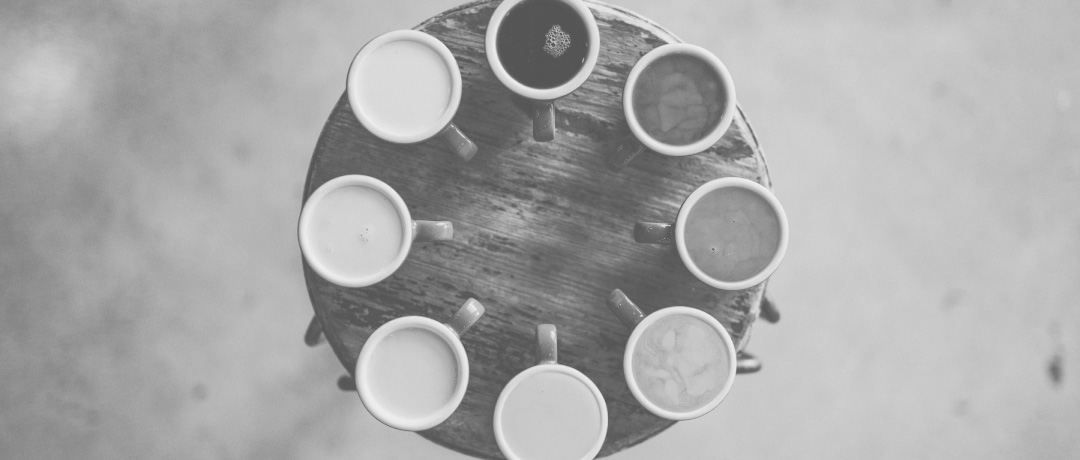Blog | 3 Low-Cost and Cost-Free Ways to Make Your Church Coffee Better

3 Low-Cost and Cost-Free Ways to Make Your Church Coffee Better
Let’s face it. The term “church coffee” is basically synonymous with terrible coffee. When you think about church coffee, you probably picture coffee that’s too weak, too burnt, and just plain tastes bad. There are exceptions to this. I’ve been to several churches that have a bit more of a coffee-centric atmosphere in the lobby with a coffee shop, some going as far as making pour overs and espresso drinks to order. But still, for the vast majority of churches, the budget and/or manpower it takes to offer this for free is prohibitive, and charging members for coffee isn’t a practical option – or just doesn’t fit the philosophy of ministry. And that’s okay! Every church serves a different community and hospitality can look different for each one.
That said, this blog is for those who want to provide drinkable coffee without breaking the bank, or spending hours of staff and volunteers’ time doing so. Here are a few tips to get started:
Clean your Coffee Maker
This seems obvious – and you probably do clean your coffee makers – but HOW you clean them is just as important as THAT you clean them. First of all, if you’re using dish soap, you should stop immediately. Soap has a tendency to stick around even after being rinsed out, and when the next batch or two of coffee is brewed, it’ll come out with a slightly soapy taste. Coffee is brewed at a high enough temperature to kill germs, so you don’t need to worry about the soap. Just rinsing the coffee maker with clean water is a better alternative to scrubbing with soap.
However, over time minerals from your water and very small particles from the coffee can build up in your coffee maker, leaving your freshly made coffee with an old, stale flavor. The best way to clean this build up is to simply run a brew cycle (without coffee grounds) using a 50/50 mixture of distilled water and distilled white vinegar. If you haven’t done this recently, or ever, you may want to run two or three cycles like this. The vinegar helps break down the build up causing the unwanted “old” flavor in your coffee. Follow up your cleaning by running one more cycle of clean water to rinse out the coffee maker, and you’re good to go!
For the cost of some vinegar and a few minutes of your time once or twice a month, you’ll up your coffee quality dramatically!
Use Great Tasting Water
Just like with any recipe or any food, the ingredients you use affect the quality of the final product. Depending on your area, the water straight from the tap tastes great! However, many churches’ tap water tastes metallic or too hard. If spending a few dollars a week to buy a few gallons of spring water is an option for your budget, it will make a huge difference in your coffee’s flavor.
Distilled or Reverse Osmosis water isn’t a great option, as it is “too pure” and will leave much of the flavor from your coffee grounds behind. The minerals in spring water actually help to trap the particles from the coffee grounds that give it a full flavor.
Coffee is mostly water, so starting with quality water is fundamental to making quality coffee!
Get Your Grind Right
Okay, so this is a two-for-one. Firstly, I highly recommend purchasing whole bean coffee and grinding it yourself just before brewing. Yes, it’s an extra step in the process, but the flavor profile of the coffee begins to deteriorate the moment the bean is ground, so the more freshly ground the coffee, the more robust the flavor. That said, if you don’t have a coffee grinder at your church than can handle that volume of coffee beans, purchasing a quality grinder is a significant expense and may not be an option. If you purchase your coffee at a grocery store, most coffee aisles have a grinder so you can purchase whole beans and grind them right there in the store, giving you a better option than pre-ground coffee that was ground who-knows-when.
If you have the option of grinding your own beans, either on-site or at the store, the size of your grind matters. There are countless methods for brewing coffee, and each one has an ideal grind size. Most church coffee set-ups will either be large commercial percolators or large drip brew machines. This is a great article that gives you the best grind size for your brewing method.
Making quality coffee doesn’t have to expensive, overwhelming, or time-consuming. Start with the basics; a clean coffee pot, great tasting water, and the right grind size for your beans, and you’ll make better coffee without blowing up your budget.

About the Author
Josh Tarp is a multi-instrumentalist, singer-songwriter, and worship leader from Minneapolis with over 15 years of experience in church & worship leadership. Josh serves as the Director of Marketing at Motion Worship, helping to write various blog posts, managing social media, designing graphics, and handling customer service.
